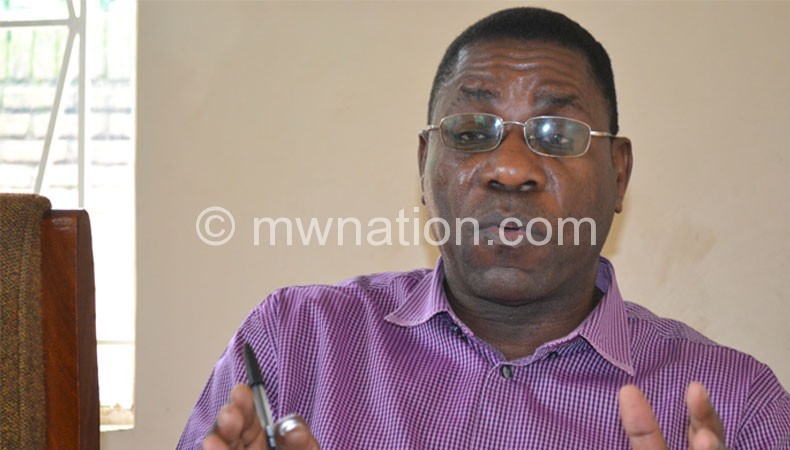APM given mixed rating
- Some praise him, others say he can do better in 2015
Civil society organisations (CSOs) have given President Peter Mutharika a mixed assessment during the first six months of his five-year term of office and general government performance in 2014.
But t he CSOs, in their assessments during interviews with The Nation, cautioned the administration of Mutharika and the Democratic Progressive Party (DPP) to improve its efforts in tackling various economic and political challenges affecting the country.
While the Human Rights Consultative Committee (HRCC) has commended Mutharika’s administration, which came to power through the May 20 Tripartite Elections, for showing glimpses of decisive leadership and making a promising start, some CSOs say the country faces a leadership crisis.

HRCC national coordinator Robert Mkwezalamba commended Mutharika for avoiding painting a rosy picture of the country’s affairs with mere rhetoric, but by quietly taking steps to tackle challenges facing the country, including through consulting several stakeholders.
Mkwezalamba, however, urged the public to keep the government in check by demanding their rights in 2015, saying time is over when governments and the civil society are given a blank cheque to act as they wish.
But Consumers Association of Malawi (Cama) executive director John Kapito differed with the HRCC. He described 2014 as a very difficult year for consumers, blaming the economic woes squarely on a “lost leadership.”

Said Kapito: “The year 2014 is one year consumers would like to forget quickly. The kwacha depreciated hugely, causing costs of living to be skyrocketing. Essential services such as water and electricity became unbearable for many a consumer; quality of education went down.
“Malawi as a country was absent, it was on holiday. The leadership, still celebrating victory of the elections, also went on holiday and in the power vacuum that followed, markets tumbled and the poor were punished hard. We hope 2015 will see the leadership coming out of holiday.”
Centre for Human Rights Rehabilitation (CHRR) executive director Timothy Mtambo concurred with Kapito and said Mutharika’s era has so far been characterised with more negatives than positives.
Said Mtambo: “I can see a leadership which is lost and lacking direction. The leadership appears to be a spectator as things unfold.”
Mtambo also bemoaned the security breakdown that saw daring robbers raiding Mudi House in Blantyre, the official residence of the Vice-President as well as the theft at the home of Natural Resources, Energy and Mining Minister Atupele Muluzi in Lilongwe’s Area 9.
While commending the civil services reforms, Mtambo said this can only work if the leadership is also reformed.
The Public Affairs Committee (PAC), making its assessment of 2014, said as far as Malawi is concerned, the year had several hurdles in terms of political and economic governance.
PAC said the country has not sufficiently moved in a positive direction both politically and economically and we are yet to see what achievement will be realised in 2015.
In a statement issued on December 31, the interfaith democracy watchdog said there is need for all Malawians to change their attitude towards upholding principles of accountability and transparency.
“Malawi will not change if we, ourselves, are resisting to change our habits and behaviour which affect the development of this country,” reads the statement cosigned by PAC chairperson the Very Reverend Dr. Felix Chingota and PAC publicity secretary Father Peter Mulomole.
PAC said it observed that the past year continued to reveal the deep-seated challenges of lack of transparency and accountability in the Malawi society as corruption and fraud scandals were so rampant in most sectors of the economy.
Mutharika and DPP won the elections on the platform of pledges for economic improvement and development.
Mutharika took over from Joyce Banda and the People’s Party (PP) who governed the country for two years from April 2012 after the death of former president Bingu wa Mutharika.
The new administration inherited an economy abandoned by donors who froze their 40 percent contribution to the recurrent budget following concerns of Cashgate, a K20 billion theft of government funds at Capital Hill. n





